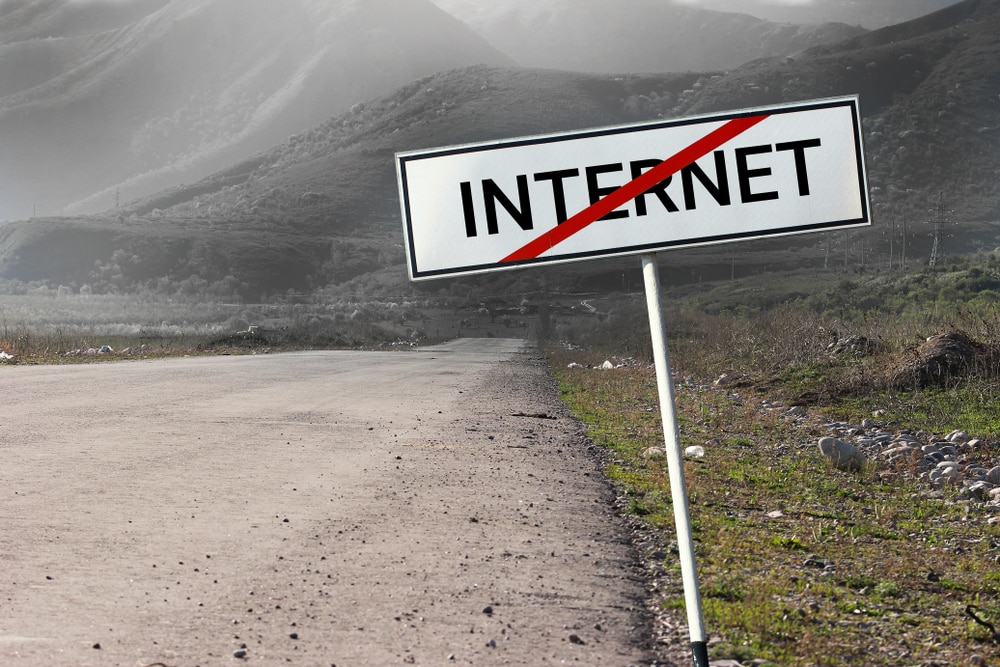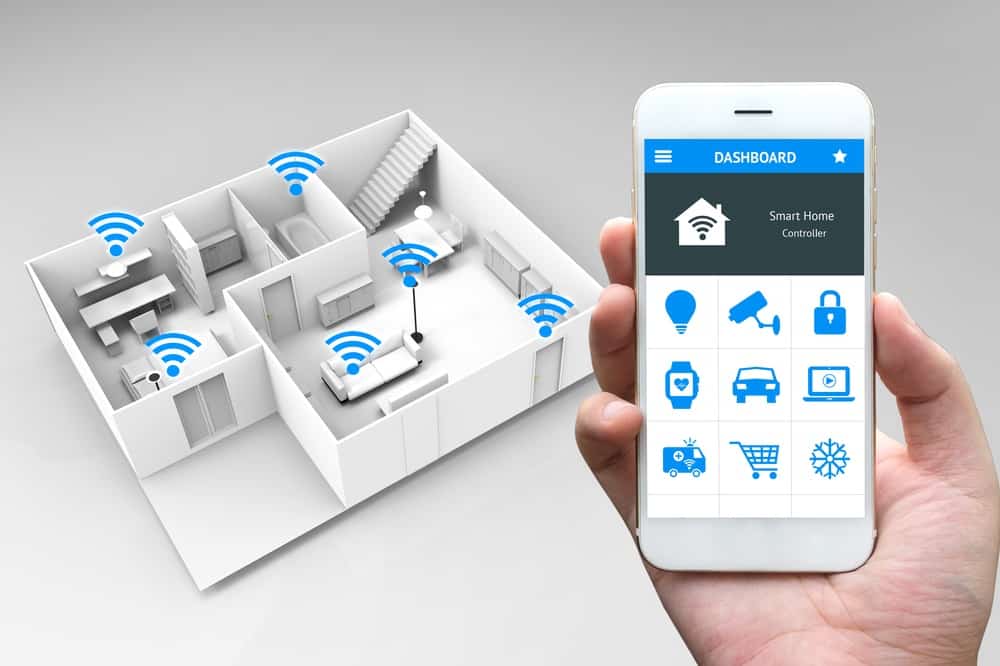
Imagine: when you get to your home from a long day at work to finally relax and enjoy surfing through the web at night, you found out that the internet is not working as it should be. At worst, it may even come to a point in which this situation occurs at the same specific time every night. Wouldn’t you find that annoying?
No one wants to have their precious leisure time interrupted by the buffering icon. Suppose if you are watching a movie or playing a game and right in the middle of it, the internet starts lagging. Why does this keeping happening? Often, due to an increase in internet traffic at night, the internet connection is weakened. Eventually, this affects the overall quality of download and streaming activities on the internet.
In a worst-case scenario, this situation can become a daily routine in which the internet can completely go out every night at the same time. There can be several reasons related to this problem and these issues can be solved in many ways. The following are some troubleshooting methods that helped users overcome their internet connection nightmare:
Watch Video Below: Summarized Solutions For “Internet Not Working Every Night At Same Time” Issue
Internet Goes Out Every Night At Same Time
1. Internet Rush Hour as A Common Culprit
The competition for bandwidth commonly starts at night, because everyone is away from home to work and school during the day time. With everyone returning home at the same time at night, it is no wonder that your streaming service is buffering.
If your neighbors are heavy internet users, you are at risk to suffer a drop in your signal. Similarly, this can also occur if you and your neighbors are using the same wireless frequency. Try changing to a different frequency or channel to avoid signal interruption.
Other than that, you can choose a different internet usage peak time for yourself. This can help lessen the competition for internet connection with the rest of your neighbors. Take note of which time at night that your internet connection is poor, then avoid the internet rush hour for tasks that require faster internet speed.
2. Distance From Your Router
The distance between your computer and your wireless router may affect your internet connectivity. An increase in distance between these two can cause a decrease in speed.
For example, your home wireless router is in the first-floor living room, and you are on your laptop accessing the internet from your second-floor bedroom. The internet signal can be lost due to the obstruction from walls, doors, and distance. Buy a WiFi range extender or move your wireless router to a more central location in your home can solve this issue.
3. Moving Router To A Different Location To Avoid Wireless Interference
Some household appliances you own at home, such as microwave ovens, and cordless phones emit harmless electromagnetic waves. This can interfere with your WiFi signals cause your signal to drop out completely.
What you can do is relocate your router to an isolated spot, away from “noisy” electromagnetic fields to improve your signals.
4. Turn The WiFi Access Off On Other Devices
To maintain a strong internet connection, your router may drop one or more of your connecting devices. It is a good practice to turn off the WiFi access on inactive devices to prevent router overloading.
5. Try 5 GHz Wi-Fi
A Dual-band router is a type of router that transmits 2 bands of Wi-Fi signal at different speeds: 2.4 GHz and 5 GHz. 2.4 GHz band gives speed up to 600 Mpbs while 5 GHz provides speed up to 1300 Mpbs.
Most devices automatically connect to the 2.4GHz band for basic internet access. If you want to improve the quality of internet activities like gaming and streaming then it is better for you to switch to the 5GHz band.
6. Changing Your Internet Plan
If none of the above methods worked for you, then it is time for you to reconsider your internet plan. Your current internet plan might be a possible reason for your nightly internet mishap because it does not provide a speed that meets your needs.
During high usage hours, your local internet service providers (ISP) might adjust your internet speeds to accommodate other users and reduce the internet traffic load. You can take an internet speed test to check whether your internet speed is compatible with your internet requirements.
It is advisable for you to upgrade to a premium plan if you want unlimited internet access. However, it can be costly. Some other options are switching to a different ISP or changing your internet connection type, such as DSL or fiber-optic internet connection.
7. Some Other Ways To Fix The Connection Drop
- Replace or exchange to a better router brand
- Visit the manufacturer’s website to check for updates for your network adapter drivers and router firmware.
- Try restarting or power cycling your router, computer, or any device you are using to surf through the internet.
- Secure the cable connection for both the router and the computer.
- If you are using a public WiFi network, make sure you connect to the correct network and entered the correct password. If you are unable to go online, you can try to connect to other WiFi hotspots.
Final Thoughts
This issue is quite common and it can be fixed in one way or another. Hopefully, these solutions helped you overcome your internet connectivity issues occurring at the same time every night. Let us know in the comment section below if you have a better fix trick. Sharing is caring!
I have a problem of slowing down my connection and my ping reach to 160-220 from 60-80 at the time of 8pm exactly and becomes normal 10:40 every nights.It happens at exact time of the day.Is that my pc problem or router problem or ISP problem?
I have EXACTLY the same issue!!!
Are there wifi boosters that will help? I pay the most expensive plan and this just started happening. How to change to a different frequency? So frustrating and frankly dangerous. Phone service is also compromised
Ya none of these apply to my situation. It’s been going on for months now and it just started randomly. At 2:00am WiFi shuts down for about 5 min. Then again at around 3:00am sometimes it’s barley minutes difference each time. Does this again at 4:00am. Doesn’t make sense. Our internet and plan is very good tbh. With nearly 400 upload. Just to be clear it the WiFi disappears completely. Doesn’t change whether 5 or 2.5. We’ve searched the app and it says there’s no issues. It’s really just a puzzle at this point. I’ve tried restarting the router in the middle of night during one of the disconnects and it does t change anything. It will still disappear the next hour. It seems to stop at 4am and it’s complete fine throughout the day no issues.
I have the same problem I still don’t know how to fix it at all
My phone losing WiFi every night brought me here! My internet is, well… Meh…I’m with TalkTalk, my old Samsung A3 lost WiFi each night, so thinking the A3 was past its sell by date, I bought the A12, same thing happens! I’m in dispute with TalkTalk at the moment, many heated phone calls, now I’m wondering if it’s all the other things in my house causing the problem, WiFi printer, laptop, cordless phone, microwave etc! Do I turn these off every night just to keep my phone connected to WiFi?
My WiFi & Internet goes out every nite from 7:00 PM to 7:00 Am, I’ve called At&t for months and all they did was run test on the system, finally they sent A line man out and he went up on the pole and run A Line from the pole to my house, the same time that nite it did the exact same thing and continues to do it to this day 9/7/2022 very very frustrating what could really be the problem?
My issue is that I lose internet connection between midnight and 01:00 every night. My wifi networks continue to work normally and are not affected( I can ping other nodes on both my both the 5Ghz and the 2.4 Ghz wireless networks – including a PC in my garage). My computer is using a wired connection to the router also indicating it is not a wifi issue!